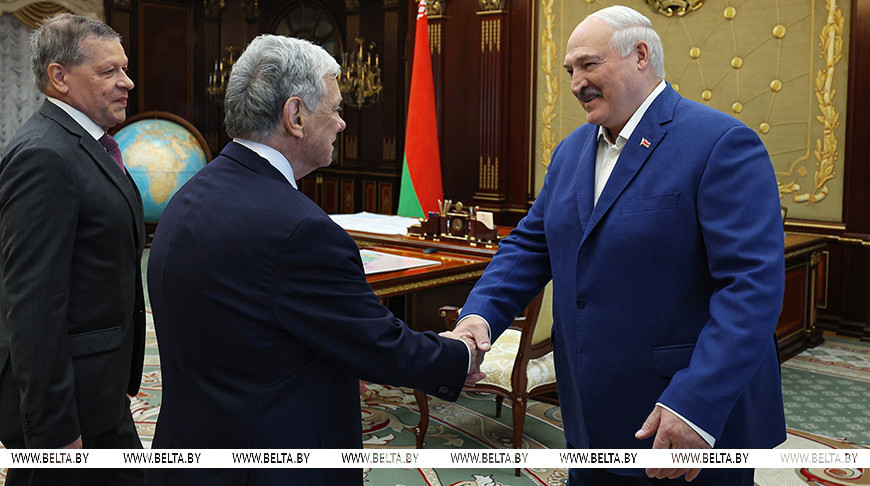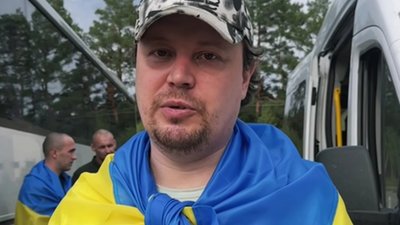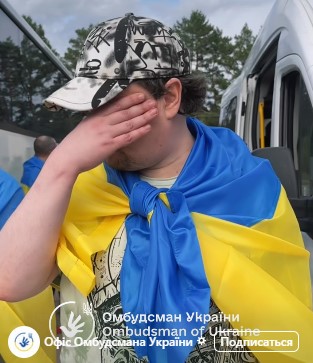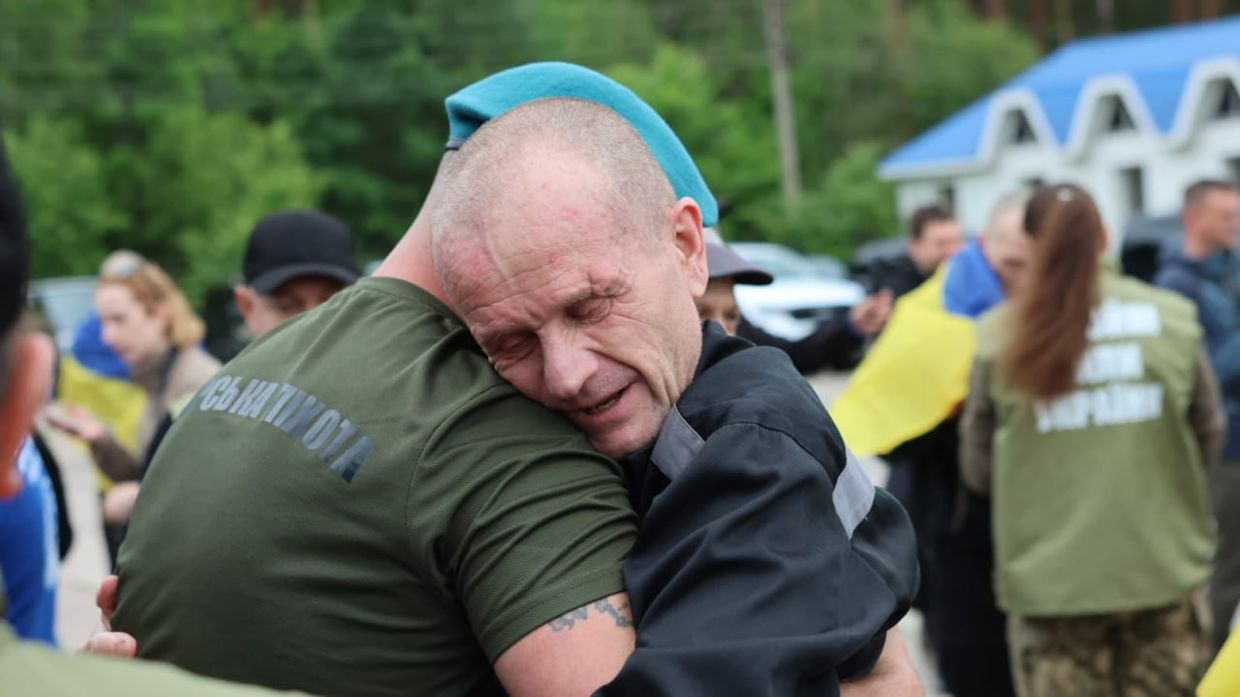Belarus Frees 52 Political Prisoners and Gets a Warm Thank-You From Trump

© Mindaugas Kulbis/Associated Press


© Mindaugas Kulbis/Associated Press


The United States has lifted sanctions on the state-owned airline Belavia, Belarusian state media reported on 11 September. The announcement was attributed to John Cole, deputy special representative of the US president for Ukraine, during a meeting with Alexander Lukashenko in Minsk.
Sanctions against Belavia were first imposed by Washington over Belarus’s human rights abuses and its close alignment with Moscow. Earlier this month, President Donald Trump said he was prepared to ease measures if Minsk moved toward releasing political prisoners.
Cole said the decision had been ordered by Trump and approved by relevant US agencies. He was quoted as saying Washington wants to normalize relations with Belarus and that lifting sanctions is “only the beginning.”
The same day, Lithuanian President Gitanas Nausėda said 52 former prisoners crossed into Lithuania from Belarus, including six Lithuanians and citizens of several EU states.
He thanked the US and Trump for their role, but stressed that more than 1,000 political prisoners remain jailed in Belarus.
Cole also delivered a personal gift from Trump – cufflinks with the White House emblem. The outreach follows Trump’s August call with Lukashenko, which he described as a “great conversation” ahead of meeting Vladimir Putin in Alaska.
Belarus has remained a key ally of Moscow throughout Russia’s war against Ukraine, allowing Russian forces to use its territory for troop deployments and missile strikes, while avoiding direct involvement of its own army in frontline combat.


© Anthony Kwan/Getty Images


© Yat Kai Yeung/NurPhoto, via Getty Images


© Ozan Kose/Agence France-Presse — Getty Images


A Ukrainian political prisoner burst into tears after his return home after seven years in a Russian colony. Kostiantyn Davidenko finally set foot on Ukrainian soil on 24 August as part of the 68th prisoner exchange.
Serving such a long sentence is remarkable, as many prisoners die in Russian captivity within a year or two due to lack of medical care, torture with electric shocks, and the absence of adequate food.

On 11 February 2018, the Russian FSB detained Davidenko in Simferopol. On 6 June 2019, the so-called “Supreme Court” of Crimea sentenced him to 10.5 years in a high-security colony, accusing him of spying for Ukraine, UkrInform reports.
Russian intelligence claimed he was allegedly gathering information on the activities of Russian National Guard units and FSB personnel.
“This is an important signal for others who have lost hope and waited for years — you will come home,” Ihor Kotelyanets, head of the NGO Association of Relatives of Kremlin Political Prisoners, emphasizes.
He adds that hundreds of Ukrainians imprisoned in Russia since 2014 still need to be rescued, including Hennadiy Lymeshko, Halyna Dovhopola, Valentyn Vyhivskyi, Volodymyr Yakymenko, Victor Shur, and the Abdullaiev brothers.
Stepping onto Ukrainian soil, Davidenko said, “Ukraine is bringing its people home. But many others, imprisoned in Russia since 2014, 2015, or 2016, are still there. They need to be here.”
This exchange is further proof that Ukraine is systematically working to return its citizens from captivity, including those unlawfully imprisoned before the all-out war.


© Arash Khamooshi for The New York Times


© Joel Saget/Agence France-Presse — Getty Images


© Manan Vatsyayana/Agence France-Presse — Getty Images


Editor's note: The story is being updated.
Ukraine has brought home another group of prisoners of war released from Russian captivity, President Volodymyr Zelensky said on June 20, following another prisoner exchange a day earlier.
"Most of the warriors returning today from Russian captivity had been held for over two years. And now, at last, they are home," Zelensky said on X, without revealing how many captives were exchanged.
Russia's Defense Ministry also said that a group of Russian soldiers had been released by the Ukrainian side, without specifying the number of personnel involved.
This week's exchanges follow four similar swaps carried out last week in accordance with Ukraine-Russia agreements reached at peace talks in Istanbul on June 2.
The latest swap was another in a series focusing on seriously ill and wounded prisoners, Ukraine's Coordination Headquarters for the Treatment of the Prisoners of War (POW) said.
"These are defenders of Mariupol, Donetsk, Luhansk, Zaporizhzhia, Kherson, Kharkiv, and Chernihiv regions. Warriors of the Armed Forces, the National Guard, and the Border Guard Service," Zelensky said.
The released POWs included privates and non-commissioned officers, some of whom were captured after the siege of Mariupol in 2022, according to the Coordination Headquarters. The oldest one is 60 years old, said Ombudsman Dmytro Lubinets.
While no political breakthrough was achieved at the Istanbul negotiations, both sides agreed to a phased exchange of prisoners and the repatriation of fallen soldiers' bodies. As part of that agreement, Russia pledged to return the bodies of up to 6,000 Ukrainian service members and citizens.
Moscow has handed over 6,057 bodies to Ukraine in several stages over the past few days, though Kyiv later said that these remains also included fallen Russian soldiers.
The June 2 agreements came after the largest known POW swap in late May, when 1,000 prisoners were exchanged on each side.
Ukraine repeatedly called for a prisoner exchange in an all-for-all format, but Russia continues to reject the offer.
 The Kyiv IndependentTim Zadorozhnyy
The Kyiv IndependentTim Zadorozhnyy